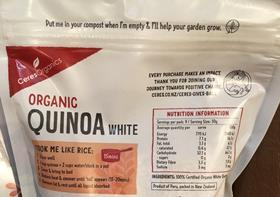
A few weeks ago, I was shopping in the supermarket and bumped into an old friend. As we were catching up in the vegetable aisle, she picked up a small bag of gourmet potatoes and a pack of red onions, and said: “Lisa – you need to do something about this. Too much plastic.” Ironically, she is employed by a global soft drink brand. Yet there she was, waving a bag of fresh veggies at me as if I were the devil incarnate!
Fast forward a week, and I get tagged in a social media post between two acquaintances about the wastefulness of buying apples in plastic punnets. A friend, knowing the produce branding/packaging work I do, tagged me and said: “Care to comment?” The short answer from me: “Nope.”
The final remark that inspired this month’s column was uttered just last week. Again another online tirade against the evils of plastic in the produce department, because packaging produce “is just so wasteful”. Yet this same group regularly buys and consumes bottled water. I hate double standards, and I am frustrated that fresh produce gets vilified when millions of plastic bottles and bags are thrown away daily.
On a much more positive note, the Auckland Food Show took place in August. At the show, it was great to see the Ceres Organics brand showcasing a world-first compostable plastic pack. A Ceres representative told me their new plastic packs will break down in about 12 weeks in a normal home compost bin. This has got to be good news for the environment, and a game changer for the packaged food industry.
So what about fresh produce? What does an evolving conversation about plastics mean for our industry?
Intuitively, I think we all know the current rate of plastic bag use cannot continue. Current estimates suggest over 5 trillion (5,000,000,000,000) bags will be used in one year. That is over 700 plastic bags per year per person for every person on the planet. Most of these bags are only used once, and take centuries to degrade.
Nevertheless, plastic bags have revolutionised the fresh produce industry. Bagged salads have changed the way shoppers consume lettuce forever. Breathable films have enabled fresh produce to be cut, sliced and diced, creating more convenient fruits and veggies, and driving consumption.
Plastic packaging has enabled produce to move beyond commodity; be segmented by brand, size or IP variety; has helped producers differentiate their offer from others; and has helped drive value growth in the industry. Plastic packaging also extends shelf-life, reduces waste and provides a barrier between shoppers and the product. I’m confident the use of plastics in produce has driven our value proposition with consumers.
So what is the answer? Is there a compostable solution for fresh produce? Got a thought – let me know.
This article was originally published in the spring edition of Produce Plus, out now.



